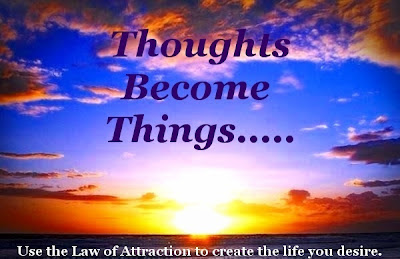Post by Quantumly on Nov 15, 2020 18:57:56 GMT -5
Law of Attraction Success Stories
Maybe we can find out the science behind the of the secret of the Law of Success with some of your stories. Tell us what you did and how it worked for you. Thank You!!
By: D. B. Dillard-Wright Ph.D.
In order to evaluate the Law of Attraction, we need to describe the claims behind the theory. Thought is held to have a magnetic power, such that whatever we habitually think becomes reality. Even more powerful than thought is the emotional valence behind the words: the feelings that we project into the Universe (or God, or the subconscious) return to us.
This is the principle of "like attracts like:" thoughts of abundance and well-being lead to good outcomes, while thoughts of lack and sickness lead to bad outcomes. We can change our lives by persistently thinking positively, and even call things into being by truly believing that they will come into our lives.
You can find many takedowns of the book on the web. Among the criticisms are that books like The Secret popularize erroneous notions about science, especially quantum physics, that prosperity thinking unfairly blames poor people for what are basically sociological realities (as in the recent Ben Carson comments that poverty is a "state of mind"), and that such theories could be harmful if they lead people to say, avoid conventional medicine or fail to practice normal financial planning.
In other words, if you go around expecting miracles, you may more easily fall prey to hucksters selling snake oil.

All of these criticisms are fair enough, and any votary of the abundance literature would do well to keep them in mind. Skepticism serves an important purpose, like a philosophical release valve that keeps dangerous theories from overtaking our lives. And yet, conversely, we all want at least a dash of the fantastic, of the larger-than-life, of the unexpected in our lives.
Without the expectation of good things that will happen in the near future, we lack the basic hopefulness necessary to get out of bed in the morning. Even if you think The Secret is bogus, it is worthwhile to find the grain of truth in it.
Think of your “mind” as a triangle consisting of the brain, your body, and the surrounding environment. Each of the three points in this system has a complex structure of its own. The brain has numerous processing centers. Neural elements extend downward into the heart and lungs, and, through the spinal column, reach every part of the body.
Then there are the other processes taking place in the body: respiration, circulation, and digestion, for example, as well as endocrine and renal functioning. The organs, systems, and cells of the body execute trillions of functions every second, and the wondrous part of it all is that the vast majority of it happens without any conscious effort on the part of the rational mind.
Read the entire article at: PsychologyToday.com
Maybe we can find out the science behind the of the secret of the Law of Success with some of your stories. Tell us what you did and how it worked for you. Thank You!!
By: D. B. Dillard-Wright Ph.D.
In order to evaluate the Law of Attraction, we need to describe the claims behind the theory. Thought is held to have a magnetic power, such that whatever we habitually think becomes reality. Even more powerful than thought is the emotional valence behind the words: the feelings that we project into the Universe (or God, or the subconscious) return to us.
This is the principle of "like attracts like:" thoughts of abundance and well-being lead to good outcomes, while thoughts of lack and sickness lead to bad outcomes. We can change our lives by persistently thinking positively, and even call things into being by truly believing that they will come into our lives.
You can find many takedowns of the book on the web. Among the criticisms are that books like The Secret popularize erroneous notions about science, especially quantum physics, that prosperity thinking unfairly blames poor people for what are basically sociological realities (as in the recent Ben Carson comments that poverty is a "state of mind"), and that such theories could be harmful if they lead people to say, avoid conventional medicine or fail to practice normal financial planning.
In other words, if you go around expecting miracles, you may more easily fall prey to hucksters selling snake oil.

All of these criticisms are fair enough, and any votary of the abundance literature would do well to keep them in mind. Skepticism serves an important purpose, like a philosophical release valve that keeps dangerous theories from overtaking our lives. And yet, conversely, we all want at least a dash of the fantastic, of the larger-than-life, of the unexpected in our lives.
Without the expectation of good things that will happen in the near future, we lack the basic hopefulness necessary to get out of bed in the morning. Even if you think The Secret is bogus, it is worthwhile to find the grain of truth in it.
Think of your “mind” as a triangle consisting of the brain, your body, and the surrounding environment. Each of the three points in this system has a complex structure of its own. The brain has numerous processing centers. Neural elements extend downward into the heart and lungs, and, through the spinal column, reach every part of the body.
Then there are the other processes taking place in the body: respiration, circulation, and digestion, for example, as well as endocrine and renal functioning. The organs, systems, and cells of the body execute trillions of functions every second, and the wondrous part of it all is that the vast majority of it happens without any conscious effort on the part of the rational mind.
Read the entire article at: PsychologyToday.com

